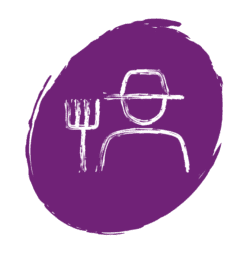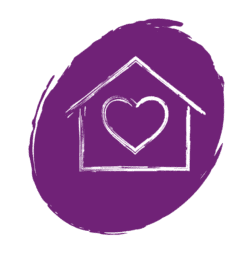Kom over en help aims to achieve its mission by supporting vulnerable neighbours to improve their degree of self-reliance. The relevant means are education, income generating activities and social care. For these we cooperate closely with local authorities, Christian organisations (NGO’s), churches, and companies, both in the Netherlands and in the countries in which we work. Our target areas are located in the formerly communist countries of Albania, Armenia, Georgia, Moldova, Ukraine, and Uzbekistan.
In order to help vulnerable neighbours to develop and attain self-reliance, Kom over en help makes use of three intervention strategies: education, income generating activities, and social care. Integral parts of these intervention strategies are lobbying, advocacy and development of civil society.

Education is an umbrella term consisting of schooling, formation and child-raising. The Universal Declaration of Human Rights officially states that education is a human right. This entails that education has to be geared towards the full development of the human personality. Therefore, education comprises a diverse range of activities focused on emotional, spiritual, cognitive and psychological development of people.
Education is a powerful engine for development and one of the strongest instruments in the battle against poverty and inequality. At an individual level, education promotes the development of knowledge and skills, which creates better opportunities for a job, as well as for income. Moreover, education does not only help the person that received education, but also their family and their community. In doing so, education lays the foundation for the socio-economic development of society. Thus, education strengthens the capacity for development of individuals, communities, organisations, and countries.
This is why Kom over en help focuses on supporting and promoting education, both in schools (i.e. formal education) and for extramural activities (i.e. informal education). Formally it aims at providing access to education and enabling pupils, students, and adults to complete their programmes at regular institutions. Informally, it aims at further developing and improving social skills, social interaction, attitude, and behaviour. Inclusion is important for both forms of education. As Kom over en help also pays attention to the spiritual well-being of people, Bible education and spiritual training are essential parts of education.

Income generating activities are all activities that are done by individuals or organisations with the objective of generating income, so that they can provide for their own livelihood. Possible activities are donating money, giving loans or micro-credits, providing courses on business plans or financial management, and offering vocational training. These enable individuals to start a company or find a job. The income generated by those activities can be re-invested or used to improve individual or family living conditions and so enhance their self-reliance.
Apart from the individual or the family, society at large also benefits from these activities, for when more people become productive and contribute to the economic growth of their region or country, employment usually increases with the growth of the production.
Income generating activities may have an enormous impact on the life of the vulnerable, such as an increase in income, improvement of the quality of life and of self-esteem, and an increase in socio-economic status. As such, income generating activities are driving forces of development. Research has shown that income generating activities reduce vulnerability, because they provide access to (financial) means and social networks.
Thus, income generating activities may be seen as key elements in the battle against poverty. Therefore, Kom over en help focuses on organising income generating activities in order to help the vulnerable neighbour to develop towards self-reliance.

Social care comprises all sorts of care and practical help for children, young people, and adults who need additional support because of their age, disability, or other circumstances. Social care comes in different forms, such as physical, emotional, or social support; and it may be temporarily or long term. Thus, it may vary from distributing medicines and providing shelter to offering a listening ear and creating a network.
Many (formerly) communist countries hardly have any social policy and social safety nets are lacking. Some countries have improved in this respect over the last couple of years. For instance, in Ukraine a law has been implemented to improve psycho-social care. Although the authorities are more open to the development of social programmes, they are quick to cut these programmes if an economic crisis or political instability arises. However, the demand for social care for the vulnerable remains unrelentingly high. It is an important determining factor for their physical, psycho-social and spiritual well-being.
Although social care is not always the solution for the complex problems of the vulnerable, it does make a difference. Social care breaks through isolation, social or otherwise, and through addiction; it stills hunger; and it reduces health problems. This is why social care is one of the intervention strategies of Kom over en help.